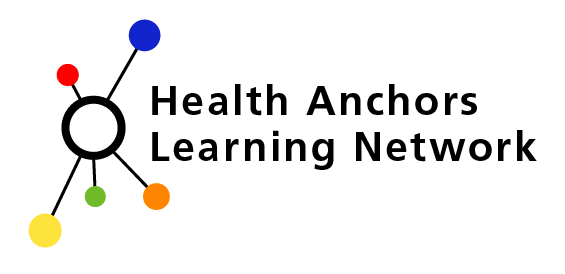Guest Blog: Michael Wood
The growing economic reverberations of the NHS’ bedpans
If the past 12 months have shown the true value of the NHS from a clinical perspective, we can expect the coming year to shine a light on the importance of its economic, social and cultural impact. With COVID-19 reminding us of the intimate relationship between health and the economy and ‘place’ becoming a more formal part of the new health and care architecture, the newly established Health Anchors Learning Network is in many ways the right initiative at just the right time.
It’s health and the economy, stupid
Economically speaking, the NHS can best be described as being ‘hidden in plain sight’. Often misunderstood as much by those within the NHS as well as from across government and other sectors, daily decisions taken on routine issues such as recruitment, procurement, capital and estates, R&D and sustainability can have far reaching consequences, both positive and negative, for the local economy.
As we increase our calls for a health-in-all policies approach to future governmental decision-making this is also a useful reminder that the reverse is also true. By reflecting on how the NHS itself behaves, we can positively impact on the wealth of the population we serve in a variety of ways; widening opportunity, encouraging investment and supporting prosperity. Given what we know about the determinants of health, it’s not too much of a stretch to see this as the roadmap needed to reduce demand on our services.
That the pandemic has brought a renewed focus on this aspect of the NHS’ role shouldn’t come as a surprise. In many parts of the country, we are one of the few remaining employers still recruiting. Businesses that once specialised in distant sectors are now finding PPE and other new health-related service models to keep them afloat. Places such as our high streets which depended on retail are now open to a mix of public service and social business partnerships.
Whether we are aware of this local influence or not, the future of those communities, businesses and civic partners currently on COVID emergency life support is to some extent in our hands. And where there is influence, there is responsibility.
Meeting great expectations
Given this context, the launch of the new Health Anchors Learning Network is a milestone in how the NHS sees its own role and potential. For a service that can feel very comfortable ‘in its own skin’ - whether in its priority setting, decision-making or labyrinthine processes, for example - the concept of acting as an anchor in local communities recognises the limitations of taking an overly clinical role in addressing inequalities. It also directly challenges the notion of the NHS acting alone, reflecting the reality on the ground that the success or otherwise of our NHS organisations cannot and should not be independent from the success of our local place. This is a population health approach that understands the periphery is as vital as the core.
Having spoken for many years to NHS leaders across the UK about their role and reach as anchors, it is clear that the interest, will and determination to understand and shape this economic and social impact is there. While the nuances of how best to do this are uniquely local there are some common questions which are often asked and which the Network can help to answer. These include:
Where should my anchor journey start?
Which local partners should I work with?
How would we measure our impact?
What is the role for the region, system and place?
By bringing together peers, partners and professionals the Network can begin to foster the sharing and support necessary to build the strategic and operational confidence in the NHS’ ability to engage as an anchor. In recognising that this is an agenda where permissiveness and principles matter far more than policing, the Network can ensure the learning is embedded in future NHS policy and expectations.
It’s still all about relationships
What the Health Anchors Learning Network cannot do however, is mandate how our leaders, nationally and locally, will act when time and resource are in short supply, the COVID pressures have transitioned into business as usual and the public policy pendulum has swung from the hospital back to the high street. Will cost trump social impact? Will local recruitment initiatives dwindle? Will we see libraries and leisure centres closing as our business? Will NHS ‘command and control’ reinforce our traditional practices?
After all, it is the answers to these questions which remain on our local partners’ minds and which will ultimately determine the impact and success not just of the Network, but of the NHS’ grasp on place more generally.
Michael Wood is Head of Health Economic Partnerships at the NHS Confederation.
Follow him on @NHSLocalGrowth.

